|
Munich, Germany
 Value Added Tax
Value Added Tax
➤ Germany's VAT is 19 percent, and it is charged on some services and permanently imported goods.
➤ VAT refunds are available, but obtaining them involves considerable time and paperwork.
➤ Germany participates in the ATA Carnet program, though the regulations are complicated. Attaching photographs of your shipment's contents to the ATA Carnet will aid the process.
 Voltage
Voltage
➤ In Munich, exhibit halls operate on 220-volt service.
 Garbage
Garbage
➤ Germany has "Green fees" that may need to be paid for the disposal of build-and-burn exhibits, so budget accordingly.
➤ Exhibitors are responsible for the disposal of garbage. Trash bins and booth-cleaning services must be ordered from the trade show organizer.
➤ German exhibit houses typically dispose of or recycle build-and-burn exhibits after the show.
 Cellphones
Cellphones
➤ International roaming through your U.S. provider may be the simplest but most expensive option.
➤ Your phone must be dualband or quadband to work in Germany.
 Shipping
Shipping
➤ Airfreight will likely take a week. Ocean freight can take up to six weeks. Ground transport from ocean ports to Munich will require several days.
➤ Exhibitors should use freight forwarders with specific expertise in shipping exhibit materials to Germany to avoid delays.
➤ Exhibitors might need someone in Munich working with the shipper, as it may require cash payments before delivery.
➤ It typically takes a week for freight to clear customs.
➤ It may be cheaper to rent a stand or hire a local builder than to ship your U.S. exhibit to Germany.
 Payments
Payments
➤ Pay for major purchases with bank wire transfers and credit cards. Some German exhibit houses will charge a deposit and then bill the balance after the show, though most expect payment at the time of service.
➤ Credit cards are not commonly used in Germany for small purchases, so have ample cash on hand.
 Emergency
Emergency
➤ Dial 110 for the police department, and 112 for medical emergencies and the fire department.
Greetings and Culture
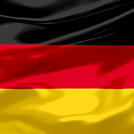
➤ Introductions should begin with a handshake, after which business cards may be exchanged. Physical contact beyond that is not welcomed. If a woman is present, it is polite to shake her hand first.
➤ An effort to speak a little German is appreciated, so open a conversation with "guten tag" (good day).
➤ Have a mutual acquaintance introduce you to prospects if possible, and first discuss nonbusiness topics to build a rapport before discussing business matters.
➤ Do not be late for appointments, as punctuality is extremely important.
➤ Decorum is prized, and loud, obnoxious, or drunken behavior is viewed negatively. Also, it is considered rude to keep your hands in your pockets.
➤ Germans require roughly the same amount of personal space as U.S. visitors, but they are typically more formal, so refrain from using given names unless invited to do so.
Hospitality
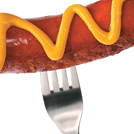
➤ Large exhibits usually have hospitality lounges that serve everything from snacks and beverages to full meals. Some exhibitors throw after-hours events in their spaces.
➤ Most small exhibits offer simple hospitality such as beverages and sweets.
➤ Sausages, bretzel (local bread), potato salad, and cookies are common local snacks served by exhibitors.
➤ Beer and wine are common on the show floor, and permission to serve alcohol is usually unnecessary.
Language
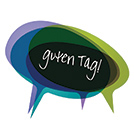
➤ English is commonly spoken in the business community, but it is best to have an interpreter present. Laborers as well as shopkeepers, waitresses, and other service providers will likely not speak much, if any, English.
➤ Graphics and literature should be printed in German and English.
➤ Business cards can be printed in English only.
Staff Attire
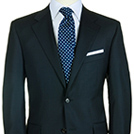
➤ Show-floor attire in Germany is formal. For men, business suits in dark colors are common.
➤ Women should wear conservative but fashionable business attire, avoiding short skirts or plunging necklines. High heels are common on the trade show floor, however.
Installation and Dismantle
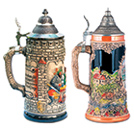
➤ Munich does not have union labor, and there are no labor pools at venues in Munich. Exhibit houses will typically arrange for all installation and dismantle services.
➤ Most show-floor laborers do not speak much English, so it is essential to have bilingual on-site supervision during the installation and dismantle process.
➤ Labor is generally quoted as a flat fee or a day rate.
➤ German laborers are likely to have a beer with their lunch.
➤ Raised, hard floors are preferred to plush carpet at German trade shows, and exhibitors are never allowed to run wires under booth carpeting.
General Facts and Tips
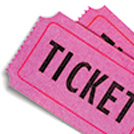
➤ Music rights are strictly enforced, and payments for in-booth music must be submitted to GEMA, the German performance rights association.
➤ Badges are not standard, and when used, they usually cannot be scanned, so plan to collect sales leads and contact information from booth visitors via a different method.
➤ Public transportation is efficient. Trains can be very crowded but may be faster than cabs during peak times.
➤ Most exhibitors buy vouchers for admission to shows and send them to clients or prospects with an invitation to attend the event.
➤ Hotels near trade show venues and in Munich's city center can sell out up to a year in advance, so make reservations early.
Venues and Resources
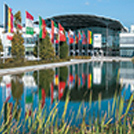
➤ Messe Muenchen is the main exhibit grounds, with roughly 2 million square feet of indoor exhibition space. It is located on the outskirts of Munich near the International Congress Center Munchen.
➤ The Munich Order Center is on the city's north side.
➤ Associations such as FAMAB ( www.famab.de/en), the Association of the German Trade Fair Industry ( www.auma.de/en), and the American-German Business Association ( www.agbc.de/agbc-chapter-munich.html) can connect exhibitors to vendors and resources for exhibiting in Munich.
SOURCES
Stephen Benedetti, director of international projects, Heilmaier GmbH Messedesign; Stephan Bosch, managing director, Syma Expo GmbH; Simon Damböck, president, Atelier Damböck Messebau GmbH; Lorraine Lorenzini, global client solutions director, Freeman; Kerstin Mulfinger, president, Kerstin Mulfinger Consulting; Steve Riches, principal, Laguna Displays; Marc Riffel, director of international business, Atelier Damböck Messebau GmbH; Rachel Rowland, marketing and public relations manager, Glow; Birgit Wittich, project manager, Gielissen Interiors and Exhibitions
|








 ➤ Introductions should begin with a handshake, after which business cards may be exchanged. Physical contact beyond that is not welcomed. If a woman is present, it is polite to shake her hand first.
➤ Introductions should begin with a handshake, after which business cards may be exchanged. Physical contact beyond that is not welcomed. If a woman is present, it is polite to shake her hand first. ➤ Large exhibits usually have hospitality lounges that serve everything from snacks and beverages to full meals. Some exhibitors throw after-hours events in their spaces.
➤ Large exhibits usually have hospitality lounges that serve everything from snacks and beverages to full meals. Some exhibitors throw after-hours events in their spaces. ➤ English is commonly spoken in the business community, but it is best to have an interpreter present. Laborers as well as shopkeepers, waitresses, and other service providers will likely not speak much, if any, English.
➤ English is commonly spoken in the business community, but it is best to have an interpreter present. Laborers as well as shopkeepers, waitresses, and other service providers will likely not speak much, if any, English. ➤ Show-floor attire in Germany is formal. For men, business suits in dark colors are common.
➤ Show-floor attire in Germany is formal. For men, business suits in dark colors are common.  ➤ Munich does not have union labor, and there are no labor pools at venues in Munich. Exhibit houses will typically arrange for all installation and dismantle services.
➤ Munich does not have union labor, and there are no labor pools at venues in Munich. Exhibit houses will typically arrange for all installation and dismantle services.  ➤ Music rights are strictly enforced, and payments for in-booth music must be submitted to GEMA, the German performance rights association.
➤ Music rights are strictly enforced, and payments for in-booth music must be submitted to GEMA, the German performance rights association. ➤ Messe Muenchen is the main exhibit grounds, with roughly 2 million square feet of indoor exhibition space. It is located on the outskirts of Munich near the International Congress Center Munchen.
➤ Messe Muenchen is the main exhibit grounds, with roughly 2 million square feet of indoor exhibition space. It is located on the outskirts of Munich near the International Congress Center Munchen.